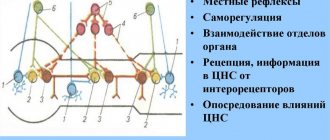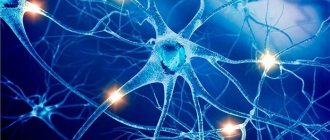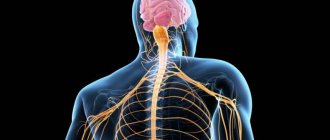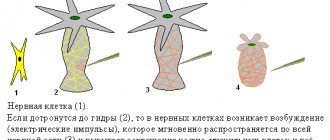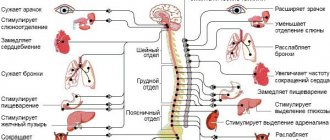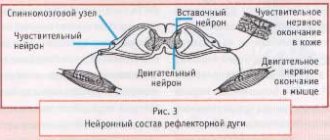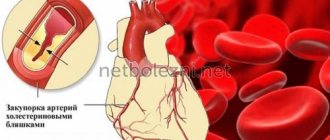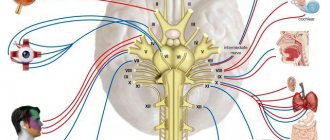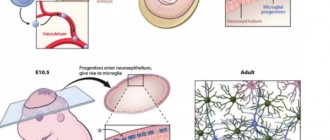A person is designed in such a way that almost every day he worries about his loved ones and worries about things that are important to him, because modern life constantly throws him into stressful situations. All this has a negative effect on the central as well as the autonomic nervous system. Moreover, such an impact does not pass without a trace. Negative emotions lead to the development of physical and mental pathologies. After all, we know that “all diseases come from nerves.”
How to maintain your health? Who should pay attention first to strengthening the nervous system? Let's try to understand this issue.
Nervous system and its strength
Which people are most susceptible to stress? Of course, those who have a weak type of nervous system. Moreover, according to experts, with each new generation the number of such people is constantly increasing.
This or that margin of safety, which distinguishes the nervous system, is given to every person from birth. This indicator indicates the performance and endurance of all nerve cells in our body. If the NS has sufficient strength, then it is able to withstand any, sometimes even the strongest, excitations. In this case, cell inhibition does not occur. Thus, the difference between people with a strong and weak nervous system is that the first of them are able to withstand extremely strong stimuli. What if the NS is weak? Then its owners cannot boast of patience. They are unable to withstand exposure to strong stimuli. They find it difficult to retain the information that comes to them. That is why people with weak nerves share it with everyone, sometimes even with the first people they meet. Indeed, in such situations, the NS begins to slow down or stops working altogether.
However, a weak nervous system also has its advantages. For example, it has increased sensitivity and is able to easily distinguish ultra-weak signals.
Symptoms of nervous and general exhaustion of the body
- Feeling tired (up to chronic fatigue syndrome);
- Shallow and/or intermittent sleep, possible severe daytime sleepiness;
- The predominance of anxious thoughts over positive ones, weak perception of pleasant sensations;
- Palpitations, unstable blood pressure;
- Sensitivity to irritants (sharp sounds and lights, unpleasant conversation, strong smell, etc.);
- Headache
- Pain in the neck, back, limbs, muscles (fibromyalgia);
- There may be a slight increase in temperature for no reason;
- Discomfort in the abdomen;
- Exacerbation of tonsillitis, pharyngitis, gastritis and other inflammatory diseases of the mucous membranes
Signs of weak nervous system in adults
What is different about a person whom nature could not endow with a strong nervous system? First of all, he shows indifference in most matters. Such a reaction suggests that the individual perceives any blows of fate without expressing his protest. A weak type of nervous system makes a person lazy. Moreover, this can be observed not only in relation to its psychological, but also physical characteristics. This is confirmed by people living in poverty and making no attempts to improve the situation and change their position in society.
Another sign of a weak nervous system is indecisiveness. A person characterized by increased sensitivity is ready to submit to everyone. Sometimes such people are possessed to such an extent that they turn into living robots.
Considering the characteristics of a weak nervous system, it is worth noting the constant doubts of its owners. Such a person often makes excuses, thereby trying to disguise his failures. And he doubts not only himself. People with a weak nervous system are also distrusted by those who try to help them in this or that matter. This is sometimes expressed in envy of those who are more successful and better in this life.
What else refers to the characteristics of a weak nervous system? By their excitement, expressed in anxiety, such people stand out from everyone else. Such manifestations clearly indicate a significantly reduced level of nerve strength. Constant anxiety often leads a person to mental disorders and even breakdowns. After all, such people live in constant fear. Fears take away their vitality and age them prematurely. It is worth understanding that certain concerns, and sometimes even great difficulties, are possible for every person. However, people with a strong nervous system meet them on their life path quite calmly, trying to find a way out of the current situation. Excessive worrying will not help solve the problem. It only takes away your health and brings you closer to old age.
A person with a weak nervous system can also be identified by the extreme caution they show. In order to bring their own plans and ideas to life, such people always need the right moment, which they constantly wait for. This sometimes turns into a habit. As a result, overly cautious people become pessimists, as they constantly think about a possible failure that could ruin their life’s work. All this results in indigestion, nervousness, inactive blood circulation and many other diseases and negative factors.
Bibliography
- Vyatkin B.A., Shchukin M.R. Psychology of human styles: textbook. allowance / Ross. acad. education; Perm. state humanit.-ped. univ. - Perm: Book World, 2013. - 128 p.
- Vyatkin B.A., Shchukin M.R. Man - style - society: polysystem interaction in the educational space: monograph. - Perm, 2007. - 108 p.
- Merlin V.S. Essay on an integral study of individuality. - M.: Pedagogy, 1986. - 256 p.
- Merlin V.S., Vyatkin B.A. Temperament // General psychology: textbook. for pedagogical students Institute / ed. prof. A.V. Petrovsky. — 2nd edition, add. and processed - M.: Education, 1976. - P. 405–421.
- Psychological service in modern education: workbook / ed. I.V. Dubrovina. - St. Petersburg: Peter, 2009. - 400 p.
- Psychology of integral individuality: Perm school / comp. B.A. Vyatkin, L.Ya. Dorfman, M.R. Shchukin. - M.: Smysl, 2011. - 636 p.
- Sambikina O.S. The relationship between the development of the style of educational activity and the integral individuality of junior schoolchildren and adolescents // Polysystemic study of human individuality / ed. B.A. Vyatkina. - M.: PER SE, 2005. - pp. 165–172.
Source: Vyatkin B.A., Sambikina O.S. Types of the nervous system and temperament as natural prerequisites for the formation of a student’s style of educational activity // Bulletin of the Perm State Humanitarian-Pedagogical University. Series No. 1. Psychological and pedagogical sciences. 2014. Vol. 1. pp. 81–100.
September 22, 2021 is the anniversary of Oksana Semyonovna Sambikina , head of the Department of Theoretical and Applied Psychology of the Faculty of Psychology, head of the master’s program “Family Psychology and Family Counseling” at Perm State Humanitarian Pedagogical University. “Psychological Newspaper” congratulates Oksana Semyonovna and wishes her health, inspiration and strength for the implementation of all creative and scientific plans!
Signs of weak nervous system at an early age
What is characteristic of impressionable children? From a very early age they are distinguished by extreme sensitivity and receptivity. At the same time, a child’s weak nervous system allows him to easily notice even the most minor changes that occur in the mood of the people around him. In addition, such children hear even the faintest sounds, rustles, and see minor shades. Such a child can even notice what is inaccessible to many of those around him. This, for example, is a slight shadow of annoyance or a spark of joy on the face of the interlocutor, as well as minor changes in the person’s gait, in his costume, and movements he makes that are invisible to many.
If a child has a weak nervous system, the process of reading books and watching films is very emotional. The plot captivates these children so much that you can often see tears in their eyes. And even after reading and watching, despite the fact that the events that caused anxiety are already in the past, memories of them cause inexplicable pain in the soul of a child with a weak nervous system.
Such children also have increased nervousness and sensitivity in cases where they find themselves in an unusual and unfamiliar environment and must do or decide something on their own. And even if it’s just some trifle, the child’s tension can be seen even in his face.
Children with a weak nervous system stand out from everyone else in physical work and educational activities. It is much easier for a teacher to work with such students. He easily accustoms them to carefully perform everyday tasks, unlike children with a strong type of nervous system, especially choleric and sanguine people. Impressionable students work better under monotonous conditions. It is not difficult for such children to get used to the daily routine. The fact is that monotonous activity does not cause much excitement, which in a child with a weak nervous system is a kind of protection against excess energy and rapid fatigue. All this should be taken into account by teachers and parents of impressionable children, without burdening them, among other things, with intense and lengthy mental or physical work. After all, such tasks will be too tiring for a small person.
It should also be borne in mind that children with a weak nervous system get tired very quickly when new conditions are created. That is, their education in the first and fifth grades becomes especially difficult. They will be able to work best at home, where no one can disturb them, or sitting at a separate table in a quiet library. If a tense and noisy environment is created, students with weak nervous systems do not cope well with the task. After all, easy tasks immediately become difficult for them. When passing exams, as well as during other exciting events, such children, as a rule, are lethargic or passive, noisy or irritable. They look sick or exhausted.
Impressionable students, unlike their peers who have a strong nervous system, are often constrained in cases that require them to act according to the current situation. If a teacher asks such children an unexpected question, it is difficult for them to answer it right away. As a rule, at such moments the student looks confused and has a tense face, not knowing what to do with himself.
When taking exams, such children show excessive anxiety. This leads to loss of appetite, insomnia or nightmares. In such situations, any feasible task seems overwhelming, and an already solved problem has an incorrect answer. After successfully passing exams, sensitive children calm down and are perplexed about their past worries. But if similar circumstances arise, this will certainly happen again.
Impressionable children sometimes get offended over a trifle. They may even cry if a conversation was completed before their appearance or a joke (not at them) was not told that caused everyone to have fun.
In children
Most children in everyday life, activities, and studies are active, lively, cheerful, resilient, and energetic. But there are other children who are characterized by passivity, isolation, and inability to withstand prolonged or intense stress. As a rule, they are distinguished by sensitivity and pronounced impressionability. The listed features in the behavioral pattern of children, first of all, are explained precisely by the type of nervous system.
A weak type of nervous system is characterized by high excitability and increased sensitivity in comparison with a strong type of nervous activity.
A weak nervous system in children is characterized by the following symptoms:
– excessive impressionability;
– mood swings, gloomy-depressed state after failures;
– inability to engage in several types of activities simultaneously;
– decreased ability to work;
– lack of confidence;
– rapid fatigue during prolonged activity;
– low concentration.
Often, such students have difficulty absorbing information in a classroom lesson, filling in the gaps with scrupulous, conscientious homework.
Those with the described type of nervous structures quickly get fed up, tend to get carried away easily, and also quickly cool down to their newfound hobby. They cannot stand criticism; during tests, exams, or a final assessment of the quality of the material learned, their answers do not correspond to their knowledge (they know more than they answer). They may suddenly cry or scream.
Children with the type of nervous system under consideration cannot tolerate public forms of disapproval, censure, and condemnation; they sadly experience bad grades.
The process of watching movies or reading books for such little ones is quite emotional. The content captivates the kids so much that you can often see tears in their eyes. Even after time has passed after reading a novel or watching a film, memories of the plot that attracted them cause inexplicable feelings in the soul of the offspring.
Increased anxiety and nervousness in them can also be triggered by finding themselves in unfamiliar conditions or in an unusual environment, if they have to decide something on their own or take some action. Even if it is necessary to do some small thing, the tension will be visible on their face.
However, the characteristics of a weak nervous system are not limited to negative manifestations alone.
Children with the described type of nervous structures are calm, diligent, careful, quiet, obedient. They function thoughtfully and effectively in familiar tasks, obtaining satisfaction. Such kids have the ability for comprehensive, in-depth analysis and careful comprehension of educational material. They also easily absorb systematic information.
Connection between body and mind
Every change that occurs in the human body certainly affects his health. That is why in medicine there is such a direction as psychosomatics, which establishes a connection between the mental processes occurring in the human body and its physiological state.
Any stress factor causes a protective reaction of the body, which is expressed in muscle tension. This allows a person to maintain health. After all, when the body is tense, the soul relaxes. When such situations occur infrequently, they do not have any negative consequences for the body. However, when random psychological traumas degenerate into prolonged stress, a person becomes ill. His pathology is of the psychosomatic type, which causes difficulties in making an accurate diagnosis. While doctors are looking for the origins of the disease, a person loses vigor and sleep, efficiency and energy. His ability to enjoy life disappears, and minor inconveniences gradually develop into significant problems.
Failures in the physiological processes of the body lead to pathologies in the mental sphere. A person has to live experiencing chronic fatigue, irritation, anxiety and vague restlessness. Over a short period of time, this condition develops into a neurotic disorder, significantly worsening the quality of life.
What to do if you have a weak nervous system? How to maintain health and prevent the development of many diseases? Simple methods that will be described below will help you achieve a significant effect.
What exactly suffers when the body is exhausted?
The body is depleting the resources it uses to protect itself from danger:
- Exhaustion of the nervous system, astheno-neurotic syndrome. When an emotion associated with anxiety and danger appears, the nervous system sends stimulating signals to the endocrine glands, heart and blood vessels, and immunity (the body must be ready to physically respond to danger, even if you do not plan it). At the same time, control over those processes that can wait for a calmer period is reduced, primarily digestion and the work of the gonads. With a long stay in a state of stress, asthenic-neurotic syndrome develops.
- Disorganization of the endocrine glands. Tired of constant stimulation by stress, the glands release hormones less smoothly. Hence problems with the thyroid gland, weight loss or gain, sexual disorders, ovarian dysfunction, diabetes, etc. with astheno-neurotic syndrome.
- Disturbances in the functioning of the heart and blood vessels. Slow or rapid heartbeat, arrhythmia, decrease and increase in blood pressure in response to constant stimulation of blood vessels by stress hormones are natural consequences of exhaustion of the body, astheno-neurotic syndrome.
- Depletion of immunity. Previously relatively harmless microbes can take advantage of a weak immune system and cause quite unpleasant phenomena. These are herpes, thrush, dysbacteriosis, tonsillitis, cervical erosion, etc. Rheumatic processes with pain in muscles, joints and spine are possible.
- Disorders of the digestive tract. Dysbacteriosis, irritable bowel syndrome and peptic ulcer are constant companions of astheno-neurotic syndrome.
Hardening
How to strengthen a weak nervous system? The most effective method that gives excellent results in this direction is winter swimming. It allows you not only to put your nerves in order and improve your health, but also to develop willpower.
With regular procedures, the body will gradually get used to cold water. Such persistence is very beneficial for health, but to get a positive result you will need to follow certain rules, namely:
- produce a gradual increase in the degree of cooling;
- perform procedures regularly.
Physical activity
Every living thing must move, and do it as actively as possible. This will allow the body to constantly use up the stress hormones accumulated in it.
With regular physical activity, a person's performance increases. His brain is saturated with oxygen, and his body increases its resistance to stress. In addition, physical activity is an excellent prevention of many diseases. The most useful thing when doing it is to relieve mental and nervous tension.
The best option for such activities are walks in the fresh air. After all, they are simple physical exercises with hardening and psychological relaxation. Such walks quickly strengthen the nervous system. And if you walk in the fresh air every day for at least 30 minutes, then a positive result will not take long to arrive. It will appear after a couple of weeks.
Tourism has no less effect on increasing the strength of the nervous system. Of course, it will take more time, but in this case you can get a positive result in just a few days.
Sports will also help strengthen your nerves. It is especially effective to engage in such types of exercise as:
- aerobics;
- run;
- rock climbing;
- yoga;
- fitness;
- Pilates;
- martial arts.
The most important condition for this is the regularity and quality of the classes.
Bad habits
You can restore your nerves and get a positive result only by giving up alcohol, cigarettes or psychoactive substances. The absence of bad habits in a person is the main condition for the health of the body.
For example, many people believe that alcohol is practically harmless. However, even with rare consumption of small quantities of alcoholic beverages, increased stimulation of the nervous system and disruptions in its functioning occur. Regular drinking leads to the development of various diseases. These ailments also negatively affect the nervous system.
As for smoking, it reduces a person’s attentiveness, memory and even level of intelligence. This effect occurs due to the constriction of blood vessels in the brain, which provokes oxygen starvation, as well as due to the ingestion of toxic substances that are present in cigarettes.
Even a cup of coffee has a negative effect on the nervous system. Initially, it increases the activity of the NS, and then sharply reduces it. Gradually the nervous system becomes exhausted. A similar thing happens when drinking energy drinks.
What to do if the nervous system is exhausted
The first thing we will do in case of astheno-neurotic syndrome is to relieve anxiety and establish normal healthy sleep, which brings a feeling of rest (stop further withdrawal of the body’s resources). In a few days you will feel calmer and freer.
Next, everything will be built like this:
- Let’s perform a small examination and find out what exactly “broke” in the body during the period of exhaustion;
- We will provide the necessary help exactly where it is needed;
- Let's give it time to recover;
- We will check the results of treatment (the control examination will be smaller in scope - we only check what was outside the normal range);
- We will gradually stop treatment as we regain good health and resources.
Some people easily cope with stress from birth, others can be taught this. We may offer you a course of correctional work with a clinical psychologist or psychotherapist. The task is to learn to turn off nervous tension when it is useless. This will prevent the development of astheno-neurotic syndrome in the future.
Proper nutrition
There are a number of products that can strengthen the human psyche and nervous system. That is why to get the desired result you will need to include in the menu:
- Nuts, cottage cheese, soy, fish and chicken. They contain proteins responsible for the functioning of reflexes and the entire central nervous system.
- Fats. Their use allows you to increase efficiency, strengthen emotional health and tone the central nervous system.
- Carbohydrates. Their main source is cereals, which provide energy to the brain and help strengthen the nerves.
- Vitamins of group B (1,6 and 12), as well as A, C, D and E. Fish and nuts, vegetables and fruits, bran, eggs and oatmeal can saturate the body with them.
- Minerals (magnesium, iron, calcium, zinc). Their presence in the body promotes the production of substances that promote the functioning and strengthening of the central nervous system. The greatest amount of minerals contains chicory and chocolate, milk and cereals, nuts, vegetables and fish.
Daily regime
Healthy and deep sleep can give the nervous system more strength. During rest, the body is restored and cells are renewed.
But early waking up, frequent awakenings, shallow sleep and lack of sleep weaken the nerves. In the absence of normal rest, a person becomes apathetic and lethargic, he has difficulty concentrating and has trouble thinking clearly. Lack of sleep often manifests itself in communication in the form of outbursts of aggression and irritation.
